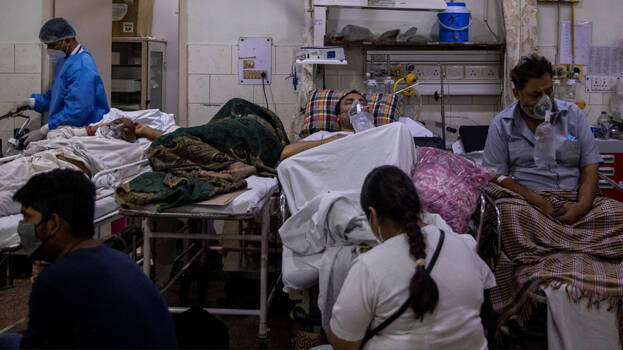




NEW DELHI: A recent report prepared by the Indian Council of Medical Research has stated that 56.4 percent of diseases in India are due to unhealthy diets. Along with the National Institute of Nutrition (NIN), the ICMR released a set of 17 dietary guidelines to prevent nutrient deficiencies, as well as address the rising risk of non-communicable diseases (NCDs) such as obesity, diabetes, and cardiovascular diseases in India.
The top research body said that the new guidelines, which include evidence-based food and lifestyle-related recommendations "underwent rigorous academic and scientific review".
They "are designed as easily understandable and practicable approaches for ensuring diet diversity to meet the requirements of essential nutrients and prevent NCDs among people of all age groups across India".
The guidelines focus on eating a balanced diet; vegetables and legumes; nutrition for pregnant and lactating mothers; food for infants, children, and adolescents; including nutrient-rich foods for the elderly; eating safe, clean food; and drinking adequate amounts of water.
It also calls for avoiding protein supplements for building body mass, restricting salt intake, moderating intake of oil and fats, adopting a healthy lifestyle to prevent obesity, maintaining proper exercise, minimising ultra-processed foods, and reading information on food labels to make informed and healthy food choices.
"The dietary habits of Indians have undergone significant changes over the past few decades, leading to an increase in the prevalence of non-communicable diseases while some of the problems of undernutrition continue to persist," said Rajiv Bahl, Secretary of the Department of Health Research, Director General, ICMR.
Rajiv noted that the guidelines have been made "very relevant to the changing food scenario in India with the addition of practicable messages and suggestions on handling food safety, choosing minimally processed foods, the importance of food labels and physical activity".
"Through the dietary guidelines, we emphasise that the most logical, sustainable, and long-term solution to all forms of malnutrition is ensuring the availability, accessibility, and affordability of nutrient-rich foods while promoting consumption of diverse foods," Hemalatha R., Director, NIN and Chairperson of the Expert Committee which brought out the guidelines, added.
The Hyderabad-based NIN revises dietary guidelines for Indians from time-to-time based on emerging scientific evidence and the changing food landscape. The most recent nutrient requirements for Indians were released by ICMR-NIN in 2020.